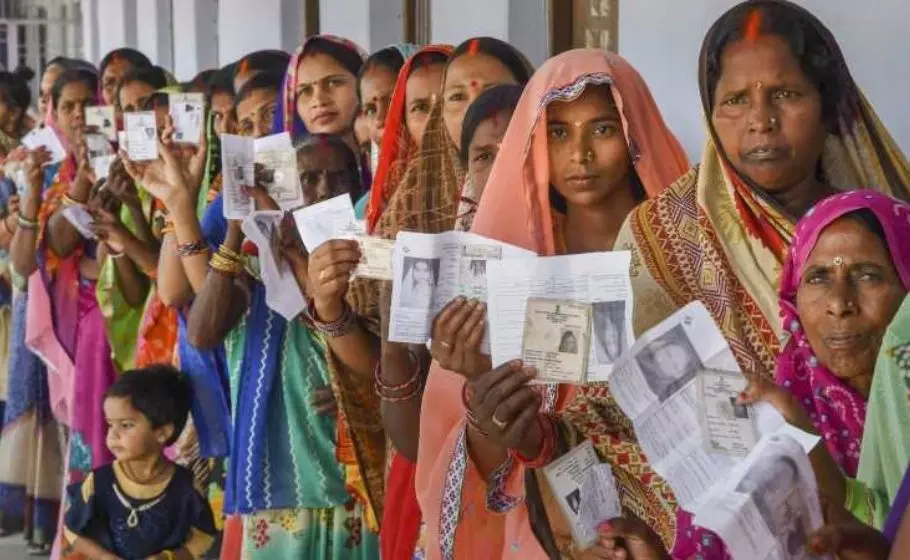
One Nation One Election | State govts, regional parties apprehensive: Ex-CEC Krishnamurthy
Krishnamurthy believes that while the federal spirit of the Constitution shall not be impacted, and voters are mature to see the difference, a clash between the Centre and states is inevitable on the issue

Former Chief Election Commissioner (CEC) TS Krishnamurthy believes that while the federal spirit of the Indian Constitution would not be impacted by One Nation One Election (ONOE), state governments and regional parties have reasons to oppose it and would certainly approach the courts.
“The high-powered committee set up by the government has suggested that the amendments to be introduced for implementing ONOE need not have the consent of the states. It goes on to suggest that consent of the state may be required only in respect of holding municipal or panchayat elections simultaneously. Otherwise, they think that a simple amendment to the Constitution without the consent of the states could be passed through,” Krishnamurthy told this reporter.
Also read: One Nation, One Election | Why govt move to introduce it in Parliament is more about optics
‘Local issues take backseat’
Regional parties have grown in numbers, and they have taken the view that the federal feature of the Constitution will be affected. “To a certain extent it could be true because when parliamentary elections take place, central issues are very dominant over state issues,” Krishnamurthy, a former IRS officer, said.
“In the event of a Lok Sabha poll, local issues are pushed to background, even though elections have repeatedly demonstrated that the electorate can elect one party at the Centre and the other at the state,” he added.
Several states have produced results with people voting for two different parties in Lok Sabha and Assembly elections.
‘Not easy to accept politically’
According to Krishnamurthy, who headed the Election Commission (EC) from 2004 to 2005, on administrative and economic grounds, it is desirable to have elections simultaneously but politically it is not a very easily acceptable point of view.
The former CEC also said that the high-powered committee recommended fresh elections in case of a hung house or no-confidence motion. The new Lok Sabha will serve the remainder of the previous term, while state Assemblies will continue until the Lok Sabha’s term ends unless dissolved earlier.
Also read: 'One Nation One Election' Bill: Opposition CMs dub move 'unconstitutional', 'anti-democratic'
“What this implies is shortening the tenure of the houses to coincide with the elections that have to be held in 2029. Most of the state governments may not like this because they think that they have spent money for a five-year period and that the tenure of the house is going to be cut down for three years, two years or four years, as the case might be. So, these are issues that can certainly be raised by regional parties and state governments,” Krishnamurthy said.
Wider public debate needed
As per the former CEC, it is always a good practice to put these issues to public debate and have different viewpoints and find out whether a reconciliation is possible.
After becoming a republic in 1950, simultaneous elections for the Lok Sabha and all state Assemblies were conducted every five years from 1951 to 1967. Voters in the country cast their votes for both the Centre and the states simultaneously in 1952, 1957, 1962, and 1967.
However, with the reorganisation of some old states and the emergence of new states, this process was completely discontinued in 1968-69. In 1983, the Election Commission, in its annual report, suggested reviving simultaneous polls. In 1999, a Law Commission report also referred to the exercise.
‘One Nation, One Election’ Bill
The Union Cabinet on Thursday approved the ‘One Nation, One Election’ Bill. The legislation is likely to be tabled in the Winter Session of Parliament. The Bill will be referred to the Joint Parliamentary Committee (JPC).
Also read: Unclear roadmap, unanswered questions render 'One Nation, One Election' a pipedream
The Bill to allow simultaneous Lok Sabha polls and state Assembly elections is high on the government agenda. In September, the Union Cabinet approved the proposal in the report presented by a high-powered committee headed by former President Ram Nath Kovind. The 18,000-page Kovind report had outlined a phased approach to synchronise elections, beginning first with Lok Sabha and state legislative assemblies, and following up with local body polls within 100 days.
The panel had received responses from 47 political parties, with 32 favouring simultaneous elections. These parties — which include the BJP, JDU and Shiv Sena — said the proposal will save scarce resources, protect social harmony, and stimulate economic development.

